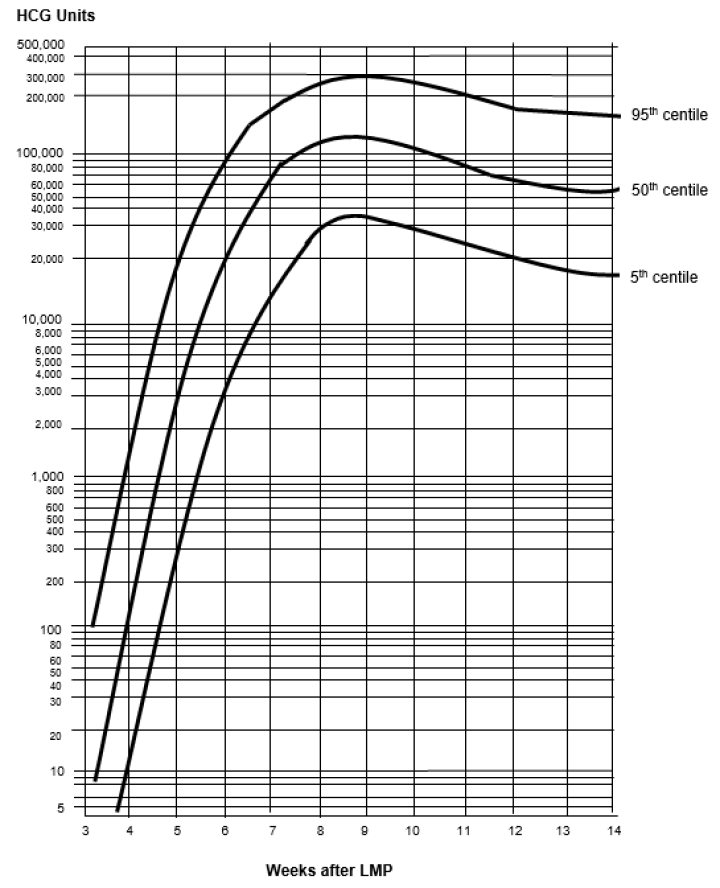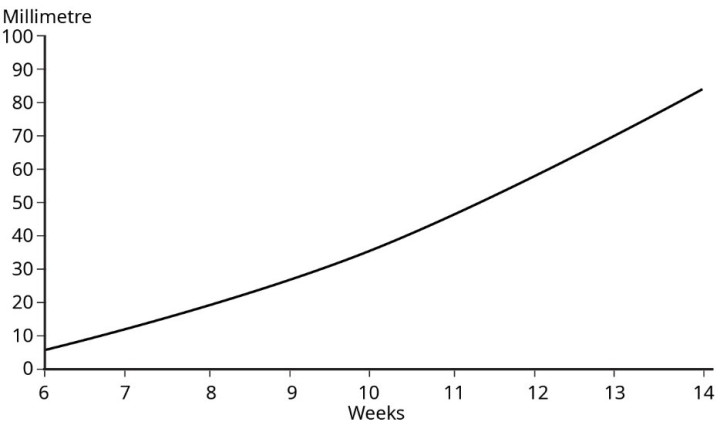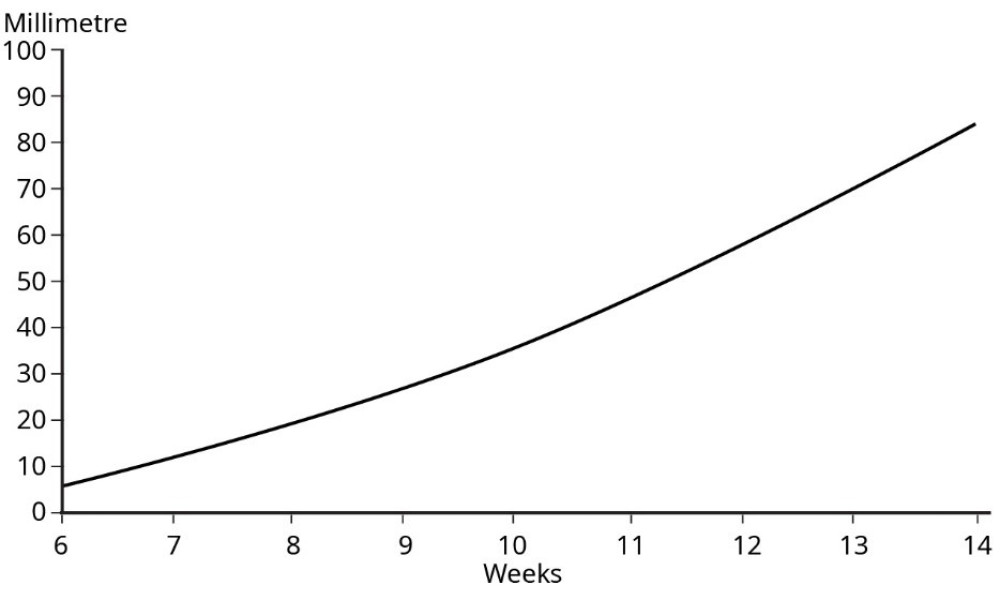On this page
Structure development
These guidelines were published in 2019 and are awaiting review, due 2022. Some content may be outdated.
Structures generally develop in the following predictable sequence.
- Gestational sac
- Double decidual reaction
- Yolk sac (yolk sac with intrauterine gestational sac confirms early intrauterine pregnancy)
- Embryo
- Embryonic heartbeat.
The timing of structure development is also fairly predictable.
- Gestational sac:
- Visible at approximately 5 weeks gestation, ± 4 days.
- Yolk sac:
- Visible at approximately 5½ weeks gestation, ± 4 days.
- Embryo and heartbeat:
- Visible at approximately 6 weeks gestation, ± 4 days.
General considerations
Beta hCG
Correlate with ultrasound appearances (see below) and refer to local clinical guidelines.
Figure 1: βhCG chart



Source: Canterbury SCL, April 2019.
Yolk sac
The presence of a yolk sac within the intrauterine gestational sac confirms an intrauterine pregnancy and essentially excludes ectopic pregnancy.
Heterotopic pregnancy is very rare but should be considered if there are suggestive ultrasound features, particularly in the setting of assisted reproductive technology.
Crown-Rump length
Growth is approximately 1.2 mm per day, but may be less in a normally developing pregnancy. Interval growth of CRL alone should not be used as a determinant of pregnancy loss.
Figure 2: Crown-rump length



Growth is approximately 1.2 mm per day, but may be less in a normally developing pregnancy. Interval growth of CRL alone should not be used as a determinant of pregnancy loss.
Figure 2: Crown-rump length
Data source: Westerway et al 2000.
Cardiac activity
Embryonic cardiac activity should always be visualised with a CRL ≥7 mm.
Slow embryonic heart rate of <80 bpm may suggest a guarded prognosis for the pregnancy.
Suggest a follow-up scan if clinically appropriate.